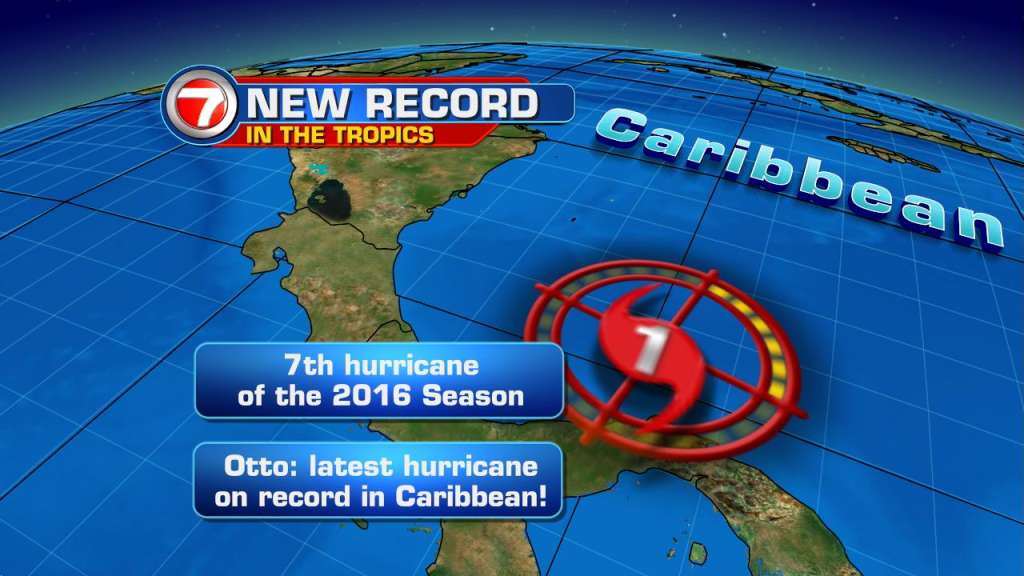ATLANTA (CNN) — The Atlantic hurricane season may be coming to an end, but not before one last storm brings some rare and significant impacts.
Hurricane season officially ends on November 30, and while the month of November can have named storms, the season is generally winding down. Impactful storms are infrequent occurrences, especially this late in November.
Otto formed in the southern Caribbean early this week as the National Hurricane Center closely monitored the area. The storm has steadily strengthened and on Tuesday afternoon became the 7th hurricane of the season in the Atlantic basin. Otto is developing later in the season than any Atlantic basin hurricane since Hurricane Epsilon in 2005.
Additional strengthening is expected, and Otto could become a category 2 storm before making landfall near the Nicaragua/Costa Rica border on Thursday. While the Caribbean is one of the few areas with warm enough water to support a hurricane this late in the season, a storm making landfall this far south is extremely rare.
Otto is expected to be the southernmost hurricane landfall since Irene hit Nicaragua in 1971. If it makes landfall in Nicaragua it will be the first hurricane to do so since Ida in 2009.
And most impressively, if Otto makes landfall in Costa Rica, it will be that country’s first hurricane landfall in recorded history (since 1851).
This portion of Central America is unaccustomed to hurricane landfalls. It also has steep terrain, which makes the area prone to flooding and landslides from a slow-moving storm.
The-CNN-Wire™ & © 2024 Cable News Network, Inc., a Time Warner Company. All rights reserved.

